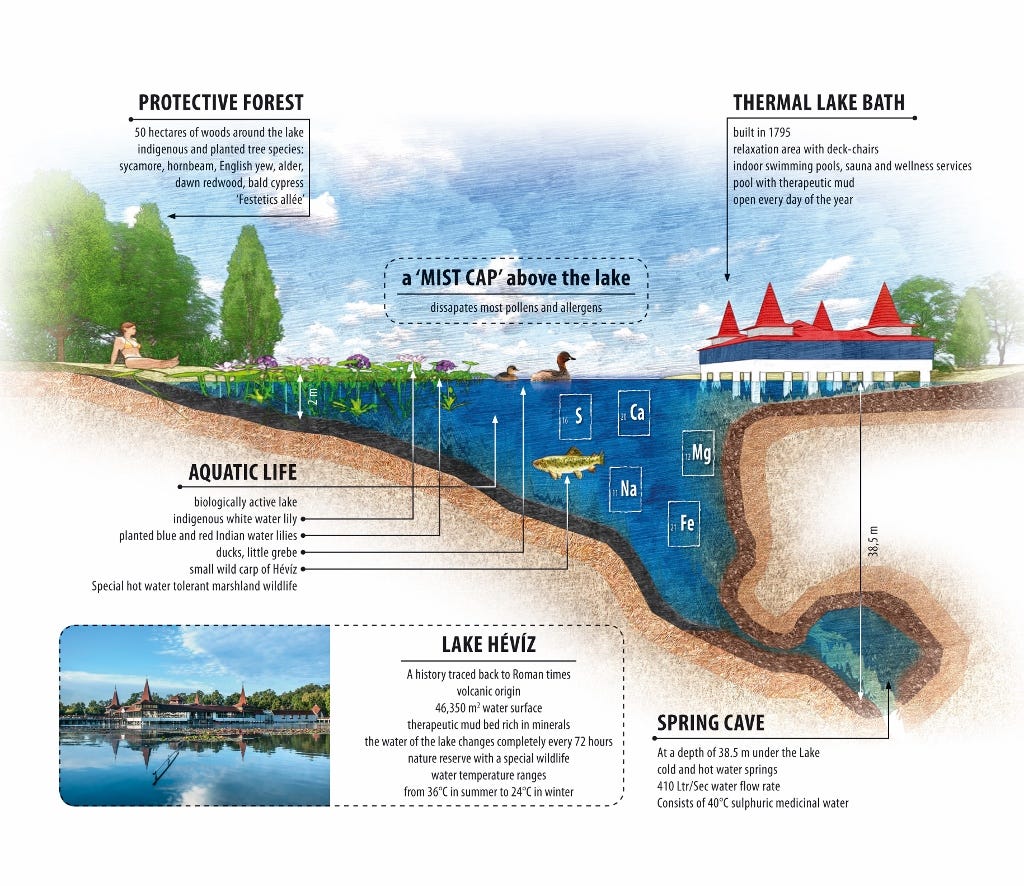Swimming in the (Second) Largest Thermal Lake in the World
It's a lake! No, it's a hot spring! Wait, it's a lake AND a hot spring!
Nobody wants to come in second.
Hévíz, Hungary, is famous for Lake Hévíz, which is basically a hot spring that’s big enough to be called a lake.
It’s one of the area’s main tourist attractions, and last month, when Brent and I lived in nearby Keszthely, everyone referred to Lake Hévíz as the largest thermal lake in the world. Even Wikipedia says it is.
Problem is, it’s not.
Lake Hévíz — pronounced Hee-vees — is the second largest thermal lake in the world, which the official website for the lake spa grudgingly admits in a single sentence on a page filled with curious facts about the lake.
Honors for the actual biggest thermal lake in the world go to Frying Pan Lake in New Zealand.
But Frying Pan Lake is too hot for people to swim in, so Lake Hévíz can accurately claim that it is the largest swimmable thermal lake in the world.
But that doesn’t exactly roll off the tongue, so most locals just say “largest,” refer you to Wikipedia, and dare you to argue.
Distinctions aside, Lake Hévíz is still a fascinating geothermal feature, even in a country known for such features. Budapest, of course, is famous for its mineral waters, with one hundred and twenty three different geothermal springs within the city limits, and fifteen dedicated spas.
Aside from its size, what makes Lake Hévíz so special?
For starters, the flow of water entering the lake from a vent on the bottom is strong enough to replace the lake’s entire volume every seventy-two hours.
At its shallowest point, the lake is two meters deep; at its deepest, it’s thirty-eight meters, which is where the hot thermal water emerges. The current generated by the inflow of water into the lake is said to be so strong you can feel it pushing up around you and then flowing off to one side.
Which is true! When Brent and I visited and swam out into the lake, we definitely felt the current around us — nothing like an ocean rip tide but definitely noticeable.
The lake is renowned for the curative effects of its waters, and as chance would have it, I’d strained my back a few days before going, and I have a chronically achy knee.
So I was looking forward to testing the lake’s healing powers myself.
Did it work? I’ll let you know by the end of the article.




